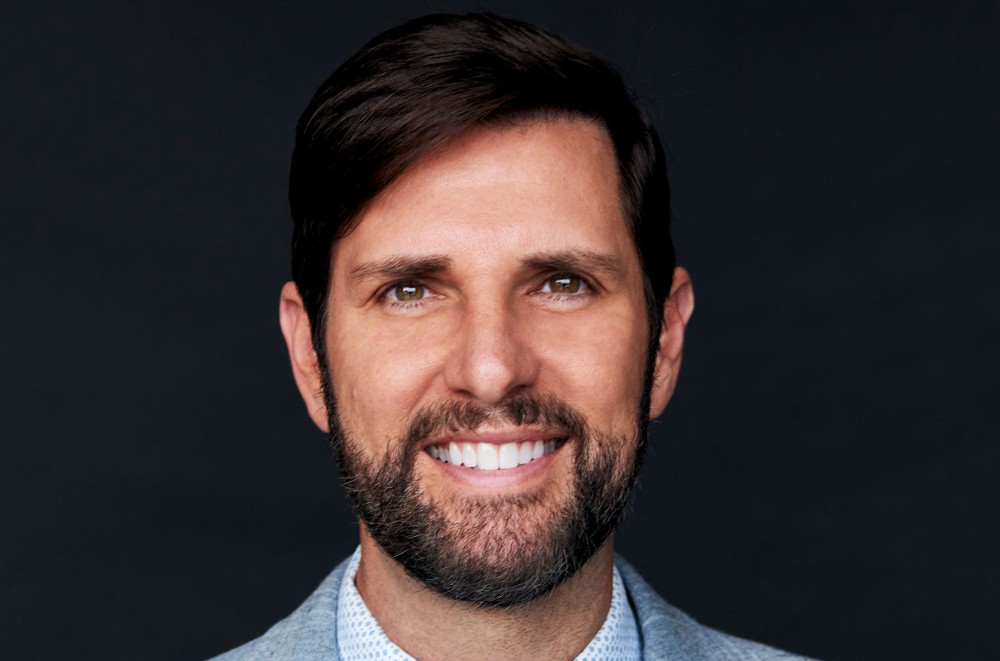The 55th Academy of Country Music Awards will once again reign as country music’s party of the year. But with a new host, the emphasis will be on the music as much as the fun.
Musician extraordinaire and 15-time ACM Awards winner Keith Urban will host the April 5 show airing live at 8 p.m. ET on CBS from Las Vegas’s MGM Grand Garden Arena.
“We are really excited about him bringing a whole fresh look and approach to the show knowing that he is, first and foremost, such a great musician,” says Damon Whiteside, who took over as the ACM’s CEO Jan. 6. “We’re going to be able to tap into his musicality throughout the show. He’s so well respected by the industry and by all the artists that I think it’s going to be really special for the artists to have Keith up there.”
Urban, the ACM’s current entertainer of the year, will bring a new vibe to the show that has often relied on the comedic talents of its hosts, including Reba McEntire and Blake Shelton, to set the mood.“Keith is going to have a different approach,” says Whiteside, who likens the situation to Alicia Keys hosting the Grammy Awards.
“We see this in a similar vein where we have a really accomplished and awarded musician and artist hosting. It brings a huge credibility to the show and a little bit more focus on the awards themselves and the artists and songs we are celebrating that night.”
The slate of nominated artists represents a wide variety of country music’s newest talents and industry veterans and even a pop superstar, given Justin Bieber’s four nominations. And, after two years of no females receiving entertainer of the year nods, two-time winner Carrie Underwood landed in the vaunted category’s final five this year. Two women artists also garnered album of the year nominations for the first time since 2017.
“I’m very excited that women are represented in every main award category that they’re eligible in this year,” Whiteside says, “as well as having the Highwomen being the first all-female group to be nominated for group of the year since Dixie Chicks did it in 2002. That’s another milestone for us.”
In addition to newcomers— 25 artists, writers and producers received their first ever ACM nomination this year— and contemporary stars with multiple nominations like Dan + Shay, Thomas Rhett, Maren Morris and Old Dominion, Whiteside also lauds the respect paid to icons such as Brooks & Dunn and Garth Brooks, who are each nominated for one award. “It’s just a really good mix across the board,” he says.
Though the ACM and show producer dick clark productions (which shares a parent company with Billboard) begin conversations with artists about appearing on the show in January, it isn’t until the nominations come out that the show’s agenda begins to take shape, especially when it comes to highlighting new female and male artists of the year (no acts met the criteria for new duo or group category this year, which includes a single that reached the Top 40 on Billboard’s Hot Country Songs or Mediabase’s charts).
The April 5 awards show will be Whiteside’s first since leaving the Country Music Association, where he most recently served as chief marketing officer during his six-year stint. Though the ACM is based in Los Angeles, Whiteside is based in Nashville, but will spend considerable time on the west coast with his 25-person staff.
“This job] is a way that I can on a daily basis make a difference in this industry as a whole and work with all the labels, managers, artists, publishers and songwriters,” he says, but he acknowledges that he inherits an organization that has gone through a period of instability with four CEOs or interim CEOS in less than four years.
“The ACM was quite honestly in a place where it needs some attention,” he says. “It needs some new strategies implemented and a] forward-thinking business model of what it’s going to be in the future. It’s an important part of the country music fabric. When I thought about the impact the ACM could have on the industry, that’s what appealed to me, and to potentially get the ACM on a positive path for the long term.”
Almost immediately, he learned to draw on the expertise of the ACM’s 70-person board when he faced his first potential crisis: Westwood One, who had long produced the radio remotes at the ACMs, decided four weeks ago to no longer take part. The remotes, which bring in dozens of radio stations to talk to artists— even those not on the show — and help promote the awards “are a huge part of what makes the awards successful and it’s a huge plus for the artists that travel into Vegas,” Whiteside says. “I got a lot of phone calls from from labels, from managers, asking what happened, saying] ‘We need the remotes or it doesn’t make as much sense for artists to come to Vegas.’ I knew at that point we needed to make something work.”
He quickly harnessed the knowledge of the radio experts on the board and came up with the decision that the ACM would produce the radio remotes and open it up to all radio groups, not just Westwood One.
The biggest item on Whiteside’s first-year agenda is figuring out the ACM’s longtime television strategy and its deal with CBS, which runs through the 2021 awards ceremony.
The current deal does not allow the ACMs digital rights to the show, which has been a sore point for the organization and for the artists. “That’s been a big issue for us. CBS has those rights, we’re not able to leverage digital rights in any way,” Whiteside says. “It’s pretty well known that it’s been a point of contention.
The labels especially are wanting ACM to garner those digital rights so they] are able to exploit those performances by their artists and put their artists’ performances out.”
After lodging its smallest total viewer tally in 12 years last year, Whiteside knows “we need to have the strongest show we’ve ever had…which plays into why I want more rights to be able to promote on the digital platforms.” To that end, he held a meeting with labels who, disgruntled as they were at not having digital rights, pledged they would provide artists this year. At press time, the ACM was still negotiating with CBS (which did not return a request for comment).
In the long term, Whiteside sees the benefits to the ACM strengthening its Nashville ties. The ACM was founded in 1964 to represent country music in the western states, counterbalancing the Nashville-based CMA. “There’s a ton we can do to move the needle in Los Angeles],” he says, but stresses the need to have a greater Nashville presence.
That could mean opening an office in Nashville or eventually moving the organization to Music City.
“I would never say never,” Whiteside says. “It’s certainly not this year. It’s something longer term. But I think we need to certainly keep a focus on the L.A. market, but we also need to put more focus on Nashville, so if that means at some point that we do have more of a physical presence here, then that’s absolutely a possibility.”



